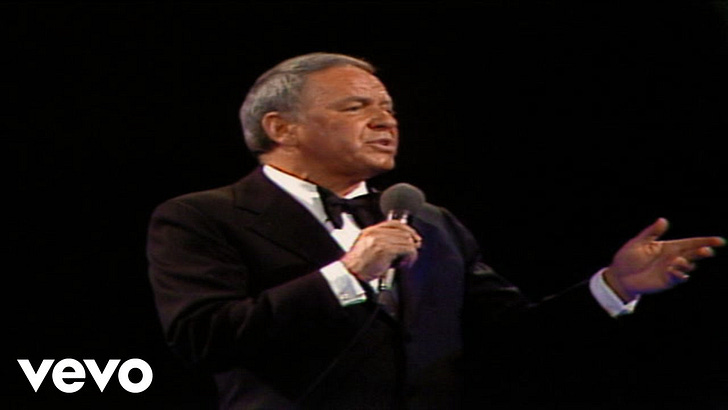Regrets, Have a Few
Why Having Regrets Can Be Healthy, and What to Do with the Ones that Nag You

Thanks for reading The Nonlinear Life, a newsletter about navigating life's ups and downs. We're all going through transitions, let's master them together. Every Monday and Thursday we explore family, health, work, and meaning, with the occasional dad joke and dose of inspiration. If you're new around here, read my introductory post, learn about me, or check out our archives.
---
I was driving my teenage daughters to a new, sleepaway program this summer, and they were nervous. They started ticking off the problems they feared: Would they like the food? Would they make any friends? Would the bugs be annoying? Then one added, “Plus, they’re going to make us learn to dive!”
“That’s your biggest worry?” I said. “That’s my biggest regret! Don’t be your dad. Learn to dive!”
“Wait, you have a list of regrets?” my daughters asked.
“Yup. And you should, too.”
Regrets have a bad name. Somewhere along the line, a romantic notion built up around the cliche interview question Do you have any regrets? that the proper response is 'no.' Really? What a shame.
Some regrets can be toxic, to be sure. But far more often, regrets can be revealing, instructive, even constructive – spurring us to improve our lives.
The scholarly definition of regret is a negative emotion that’s predicated on feeling bad that you missed out on a better outcome by taking – or not taking – a certain action. The self-blame that often accompanies regret can last for years and weigh on our expectations, our superstitions, and our ongoing behavior.

Miley Cyrus swings naked on a wrecking ball for her 2013 music video.
Miley Cyrus has said that she regrets her decision to swing naked on a wrecking ball, which wrecked her reputation; Bill Gates said this week that he regrets some of his behavior with female employees at Microsoft, adding that "everyone" has regrets. Even the most famous poet of regret, Jacque Revaux, co-writer of the French song that became the classic hit “My Way,” has a few regrets of his own. "I don’t even have a photo with Frank Sinatra.” [The famous English lyric, “Regrets, I’ve had a few,” was actually written by Paul Anka.]
A megastudy conducted by researchers at the University of Illinois found that the top six regrets people have are in the following areas:
1. Education
2. Career
3. Romance
4. Parenting
5. Self
6. Leisure
When I posed the question What’s your biggest regret? on my Facebook page, the answers corresponded to this ranking. The first answers that popped up:
Not going to college
Not getting my masters
Not completing my education
Followed by:
Not becoming a standup comedian
Not buying that yellow house
Not having you on my podcast
OK, that last one may have been my fault, but I’ll fix it!
Seriously, notice what all these answers have in common: They are regrets of inaction, not action. Scholarship backs this up. Researchers Shai Davidai and Tom Gilovich found that people have more painful regrets about what they could have done as opposed to what they did do. Their explanation: It’s easier to repair, undo, or apologize for actions we’ve taken as opposed to going back in time and reversing inaction.

A statue of Nathan Hale, a spy for the colonies during the American Revolution, engraved with his iconic final words before being hanged by the British: "I only regret that I have but one life to lose for my country."
So how can you convert your regrets from being something harmful to being something helpful?
1. Imagine the Alternative
The reason regrets become regrets to begin with is that we assume the counterfactual would have turned out better. That’s hardly guaranteed. As Kierkegaard said,
“Marry, and you will regret it; don’t marry, you will also regret it; marry or don’t marry, you will regret it either way. Laugh at the world’s foolishness, you will regret it; weep over it, you will regret that too; laugh at the world’s foolishness or weep over it, you will regret both.
The point is, imagining an alternative that’s not so rosy may free you from feeling so bad. And the truth is, even had you chosen that alternative route, you might still have felt regret.
2. Ask Why?
To stop flagellating yourself and start learning from your feelings, shift from making statements to asking questions. By moving from I should have done this or I should not have done that to Why did I do this? or Why did I do that? you open the door to learning from your regret so you can make better decisions in the future.
3. Take Risks
Researchers from the University of Illinois found that people’s biggest regrets are a reflection of where in life they see their biggest opportunities. They are a portal into where you imagine your best prospects for growth and renewal. By identifying your biggest regrets, you can identify which arenas of your life give you the biggest meaning and value and focus your future decisions on fulfilling those desires.
Regrets, in other words, are a conduit to living. They are an invitation to stand at the water’s edge and dive into your dreams.
☀
Thanks for reading The Nonlinear Life. Please help us grow the community by subscribing, sharing, and commenting below. Also, you can learn more about me, read my introductory post, or scroll through previous posts.
You might enjoy reading these pieces:
#WordsForLife: Live the Questions
Or these books: Life Is in the Transitions, The Secrets of Happy Families, Council of Dads.
Or, you can also contact me directly.





